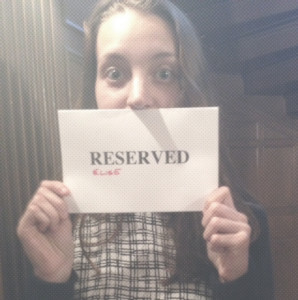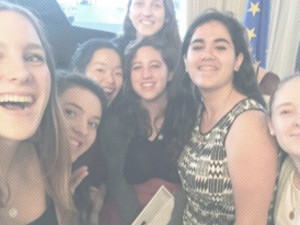
Hi everyone, music nerd here! Are you ready to unveil your secret love for the romanticism and absurdity that is classical music? Yes? Great! This month, I want to start off with one of my favorite places in the world and what I consider to be the world’s true music capital: Deutschland! (Forget Italy.) And what better way to kick this column off than with a live music review from the German Consulate?
I recently fell in love with German lieder, a style of classical music that dominated the German Romanticism movement of the 19th century. During this time, Germany was exploding with art, producing some of the greatest artists and the most heart-wrenchingly beautiful classical music.
Typically, I associate lieder with the repertoire of a novice singer because the music on the page is “beginner-friendly.” At first glance, it looks like the singer’s got it easy: simple rhythms and relatively uncomplicated notes. So the singer doesn’t have to work so hard, right? Wrong! Lieder is actually extremely difficult to pull off because it is ALL about the text and thus dependent on how the singer presents it. Unfortunately, because the music is easier on a technical level, lieder tends to be oversung and mundanely performed. As a result, the artistry is often lost. Unexpectedly, when I arrived at the German Consulate performance all dressed up and not expecting much, I was completely blown away by this lieder performance, appropriately titled Lieder Alive!

Of the three performers, Heidi Moss, Kindra Scharich, and Kirk Eichelberger, Kindra was my favorite. While each had a refreshing take on their individual lieder sets, complete with beautifully natural facial expressions to boot, Kindra’s performance was on a whole other level. Her stage presence was so strong, and her voice powerful and warm; I never felt the need to look down at my program once, and for someone who isn’t so keen on lieder to begin with, that’s pretty damn impressive. (She’s practically my idol now.) She has this gift of using her body language and facial expressions to make the audience understand her words, which made the performing even more engaging. I had no idea what she was saying, but I knew how she wanted me to feel and how to react.
Being in a small concert space only amplified how powerful the performance was, and luckily for me, I got my own reserved seat right in the middle of the second row, a good six feet away from the performers. During the entire two hours, I felt like I was deeply connected to the singers and their energy felt almost tangible. During certain songs, I felt like I was being lifted from my seat and my heart literally ached from the beauty of their voices. I was like an energy-absorbing sponge. Talk about a performer-audience relationship! It was definitely quite an emotional experience.

So what distinguishes a good performance from a great performance? I kind of hinted at it earlier. A great performance develops a uniquely intimate relationship between the performer and the audience, which would be impossible for the performers to do if they are not in touch with the music. In order for a performance to be effective, the performer must sing as if the text were coming from their own heads, and German lieder provides the perfect opportunity to do so. As an audience member, especially in a smaller venue, it’s also interesting how an oddly intimate connection can be established between the strangers in the audience. You leave feeling a little vulnerable and like you’ve been on one hell of an emotional rollercoaster with a bunch of people you’ve never even met, and yet they feel familiar.

What listeners tend to respond to isn’t necessarily if someone sings the notes correctly, as much as it is the way the performers present themselves. To quote my voice teacher, “We hear what we see.” Performances are like blind dates. You gotta be interesting in order for people you don’t know to listen to you. But it’s not just about that cool trip to Africa you did last month or how you met the President the other day, it’s about how you deliver the piece as a compelling audio-visual presentation. We go to performances to be entertained, right? We also want it to be genuine because obvious faking by a performer is always uncomfortable. People start to shuffle their programs, avoid eye contact, perhaps take a nap—all bad signs of lost communication between the performer and the audience. This performance provided no opportunities for any daydreaming, proving lieder is very much alive.
In case you’d like to relive this experience with me to some extent, here are some videos of Kindra Scharich. She’s a gorgeous performer and her voice is so warm and rich like a cozy blanket from heaven.
Anyway, go ahead, give it a listen and don’t be afraid to love it. Isn’t it odd that this stuff was the equivalent to today’s pop music back then? If you’re not touched by this, I recommend you find some kitty therapy to restimulate your emotions. They’re there somewhere!





